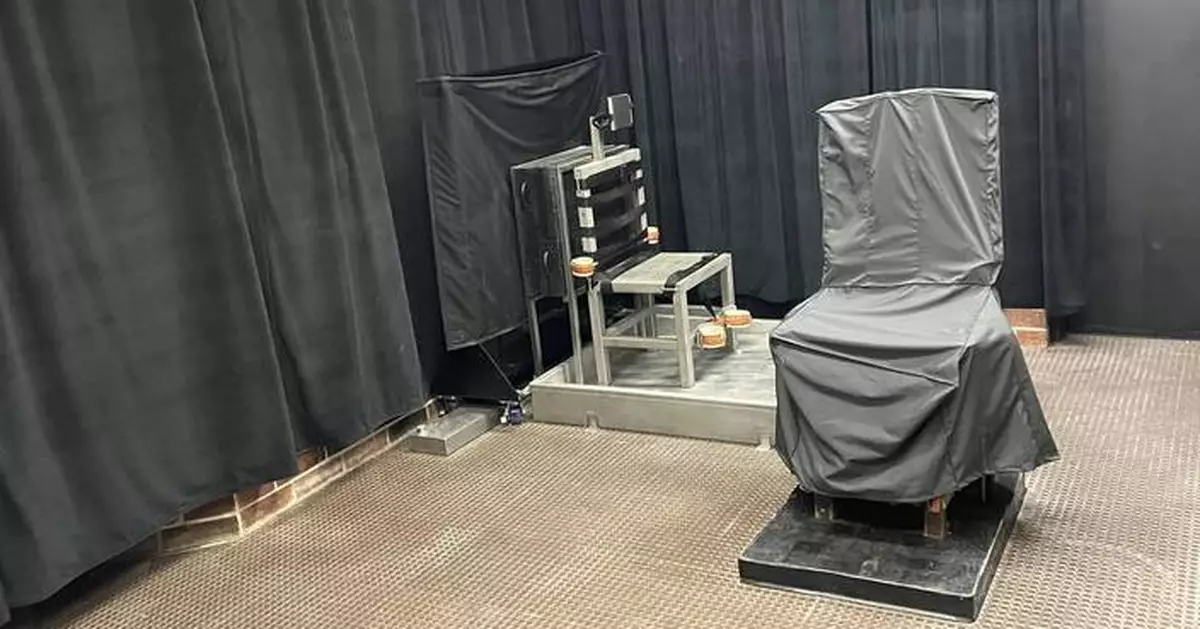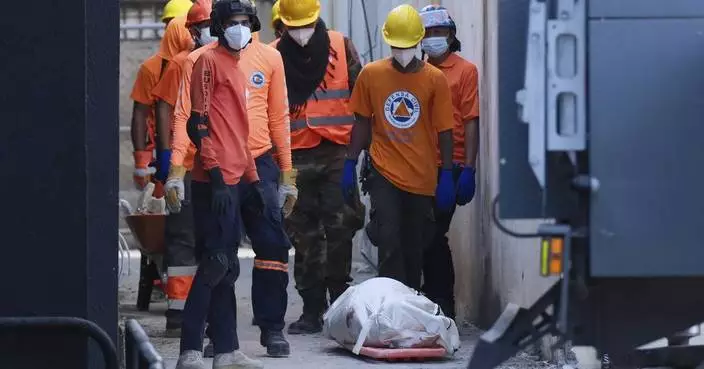COLUMBIA, S.C. (AP) — South Carolina's highest court on Monday rejected the last major appeal from Mikal Mahdi, who is scheduled to die by firing squad later this week for the ambush killing of an off-duty police officer.
Mahdi's lawyers said his original attorneys put on a shallow case trying to spare his life that didn't call on relatives, teachers or people who knew him and ignored the impact of weeks spent in solitary confinement in prison as a teen.
But the state Supreme Court, in a unanimous decision, ruled that many of those arguments were made in earlier unsuccessful appeals and refused to stop Friday's scheduled execution so further hearings could be held.
Mahdi, who admitted killing an off-duty police officer in an ambush at the officer's Calhoun County shed, is the fifth person set to be executed in South Carolina in less than eight months. All made final appeals to the state Supreme Court but all were rejected.
Mahdi has one more opportunity to live, by asking Republican Gov. Henry McMaster to reduce his sentence to life in prison without parole just minutes before his scheduled execution time. He is to be put to death with three bullets to the heart at 6 p.m. on April 11 at the Broad River Correctional Institution in Columbia.
But no South Carolina governor has offered clemency in the 47 executions carried out in the state since the death penalty resumed in the U.S. in 1976.
Mahdi, 41, was convicted of killing Orangeburg Public Safety officer James Myers in 2004, shooting him at least eight times, then burning his body. Myers' wife found him in the shed, which had been the backdrop to their wedding 15 months earlier.
Myers' shed was a short distance through the woods from a gas station where Mahdi tried but failed to buy gas with a stolen credit card and left behind a vehicle he had carjacked in Columbia. Mahdi was arrested afterward in Florida while driving Myers' unmarked police pickup truck.
Mahdi also admitted to the killing three days earlier of Christopher Biggs, a Winston-Salem, North Carolina, convenience store clerk who was shot twice in the head as he checked Mahdi's ID. Mahdi was sentenced to life in prison for that killing.
Mahdi pleaded guilty to killing Myers, leaving a judge under South Carolina law to decide if he would be sentenced to death or life without parole.
Prosecutors called 28 witnesses for Circuit Court Judge Clifton Newman to hear. The defense called two, according to Mahdi's appeal.
The defense’s case to spare Mahdi’s life lasted only about 30 minutes. It “didn’t even span the length of a Law & Order episode, and was just as superficial,” Mahdi's lawyers wrote.
Prosecutors said Mahdi was able to present much more evidence during a 2011 appeal that had to be heard inside a prison because Mahdi had stabbed a death row guard during an escape attempt. A judge rejected the appeal.
“In Mahdi’s vernacular, if his mitigation presentation before Judge Newman ‘didn’t even span the length of a Law & Order episode,’ the review of any potential error is in its 24th season,” the state Attorney General’s Office wrote in court papers.
As a prisoner, Mahdi has been caught three times with tools he could have used to escape, including a piece of sharpened metal that could be used as a knife, according to prison records. While he was on death row, he stabbed a guard and hit another worker with a concrete block, the records show.
“The nature of the man is violence,” prosecutors wrote.
Mahdi is to be the second inmate executed by South Carolina's new firing squad after Brad Sigmon chose that way to die last month.
The firing squad is an execution method with a long and violent history in the U.S. and around the world. Death in a hail of bullets has been used to punish mutinies and desertion in armies, as frontier justice in America’s Old West and as a tool of terror and political repression in the former Soviet Union and Nazi Germany.
Before Sigmon's execution last month, only three other prisoners in the U.S. had been executed by firing squad in the past 50 years. All were in Utah, most recently Ronnie Lee Gardner in 2010.
Three prison employees who volunteer for the role will fire high-powered rifles at Mahdi from 15 feet (about 4.5 meters) away, aiming for a target on his heart.
Mahdi also could have chosen the electric chair or lethal injection.
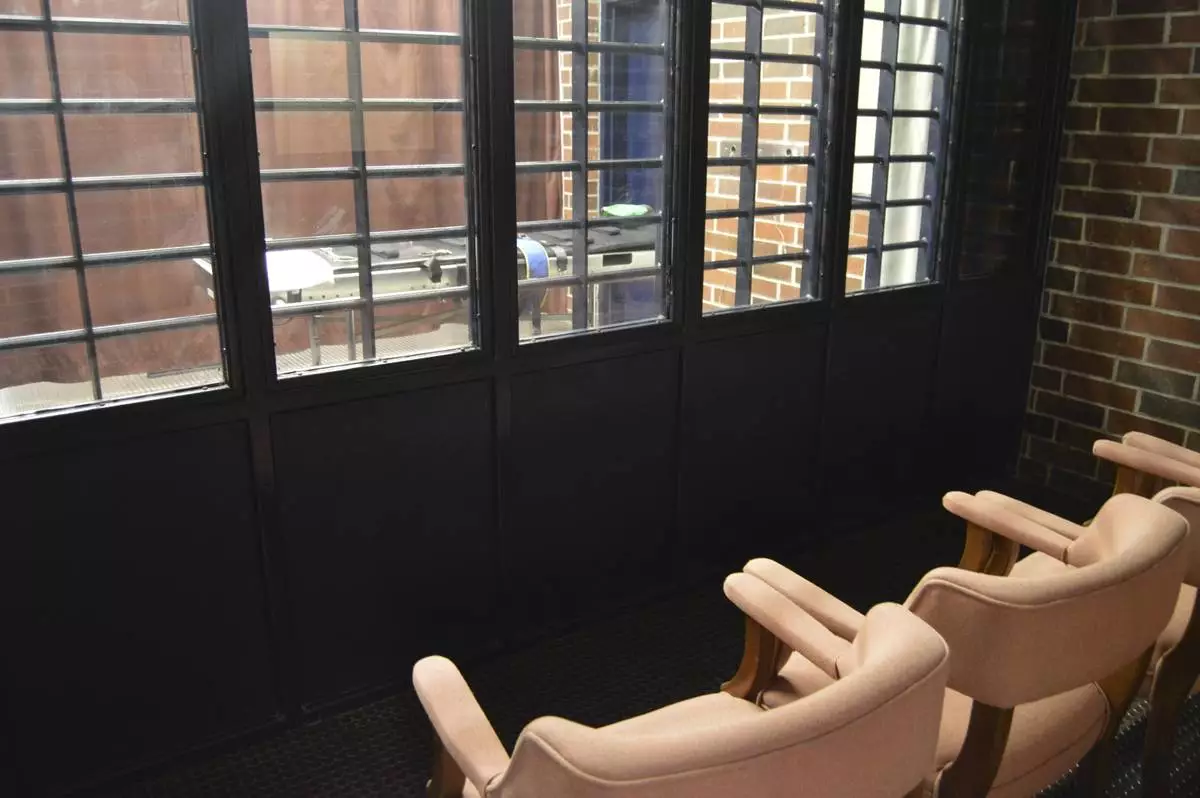
FILE - This undated photo provided by the South Carolina Department of Corrections shows the witness room in the execution chamber at the Broad River Correctional Institution in Columbia, S.C. (South Carolina Department of Corrections via AP, File)
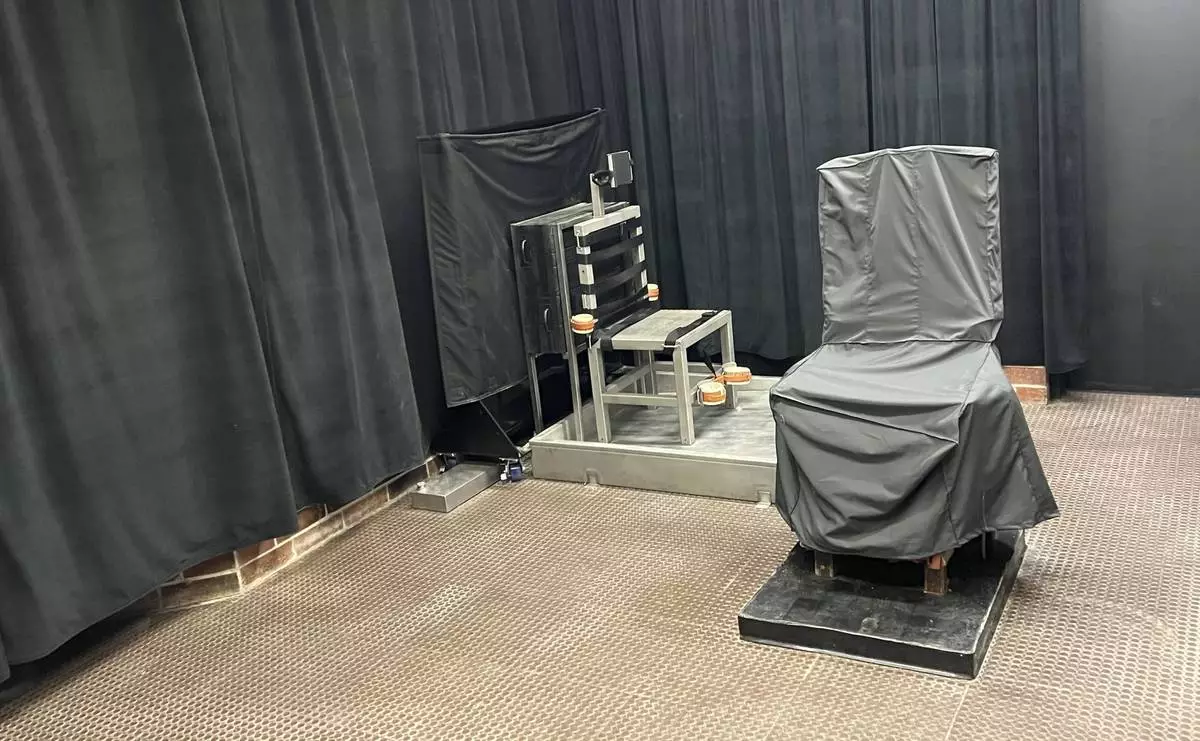
FILE - This photo provided by the South Carolina Department of Corrections shows the state's death chamber in Columbia, S.C., including the electric chair, right, and a firing squad chair, left. The South Carolina Supreme Court will hear arguments Tuesday, Feb. 6, 2024, on whether the state can use the electric chair, firing squad or a new lethal injection protocol to carry out its first executions in nearly 13 years. (South Carolina Department of Corrections via AP, File)
The U.S. Supreme Court will not delay Karen Read’s second murder trial on claims of double jeopardy, setting the stage for opening statements to be presented next week.
Read’s attorneys had filed an emergency appeal for a delay in the trial, contending that trying her again on second-degree murder and leaving the scene would be double jeopardy. But the high court's denial means the trial could start early next week, since all but one of the jurors have been chosen. Jury selection began last week. Lawyers are seeking to seat 16 jurors, with four serving as alternates.
Read, who lives in Mansfield, Massachusetts, is accused of striking her boyfriend, Boston police officer John O’Keefe, with her SUV and leaving him to die in a snowstorm in 2022 outside a house party in nearby Canton. Her attorneys have said O’Keefe was actually killed by someone else, possibly another law enforcement agent who was at the party, and that she was framed.
Last year, the judge declared a mistrial after jurors said they were at an impasse and deliberating further would be futile.
After the trial, several jurors came forward to say the group was unanimous in finding Read not guilty of the most serious charge, second-degree murder, and a lesser charge. Despite attempts by Read’s lawyers to get those charges dismissed, she will face the same counts as she did at her first trial. They also failed to have the entire case tossed, arguing governmental misconduct.
Read, who worked as a financial analyst and as a Bentley College adjunct professor before she was charged, faces second-degree murder and other charges in the death of John O’Keefe, who was 46 when he died. The 16-year police veteran was found unresponsive outside the home of a fellow Boston police officer.
After a night out drinking, prosecutors say Read, who is 45, dropped off O’Keefe at the house party just after midnight. As she made a three-point turn, prosecutors say, she struck O’Keefe before driving away. She returned hours later to find him in a snowbank.
As they did at the first trial, prosecutors will try to convince jurors that Read’s actions were intentional. They are expected to call witnesses who will describe how the couple's relationship had begun to sour before O'Keefe's death. Among them will be his brother, who testified during the first trial that the couple regularly argued over such matters as what Read fed O’Keefe’s children, and that he witnessed a 2021 fight the couple had in Cape Cod over how his brother treated her. The brother's wife testified that Read told her the couple had argued in Aruba after she caught O’Keefe kissing another woman.
The defense is expected to portray the investigation into O’Keefe’s death as shoddy and undermined by the close relationship investigators had with the police officers and other law enforcement agents who were at the house party.
Among the key witnesses they will call is former State Trooper Michael Proctor, who led the investigation but has since been fired after a disciplinary board found he sent sexist and crude texts about Read to his family and colleagues. He is also on the prosecution's witness list.
A key moment in the first trial was Proctor’s testimony, in which the defense suggested his texts about Read and the case showed he was biased, and had singled her out early in the investigation and ignored other potential suspects.
They also are expected to suggest Read was framed, saying O’Keefe was actually killed inside the home during a fight with another partygoer and then dragged outside. In the first trial, defense attorneys suggested investigators focused on Read because she was a “convenient outsider” who saved them from having to consider law enforcement officers as suspects.
Ahead of the second trial, the two sides sparred over whether Read's lawyers will be allowed to argue that someone else killed O'Keefe. Judge Beverly Cannone ruled Monday that attorneys can't mention potential third-party culprits in their opening statements but will be allowed to develop evidence against Brian Albert, a retired police officer who owned the Canton home, and his friend Brian Higgins. Lawyers cannot implicate Albert's nephew, Colin Albert, the judge said.
A town-commissioned Canton Police Department audit following O'Keefe's death was released Sunday. While not reinvestigating any cases, its top suggestions regarding Read's were that first responders should have photographed O'Keefe where he was found before he was moved; that all interviews of “critical witnesses” should have been done at the department after O'Keefe was taken to a hospital; and that agreed-to recordings of witness interviews be conducted.
Soon after the mistrial, Read's lawyers set out to get the main charges dropped.
They argued Judge Cannone declared a mistrial without polling the jurors to confirm their conclusions. Defense attorney Martin Weinberg said five jurors indicated after the trial that they were only deadlocked on the manslaughter count and had unanimously agreed that she wasn’t guilty of second-degree murder and leaving the scene, but that they hadn’t told the judge.
The defense said that because jurors had agreed Read wasn't guilty of murder and leaving the scene, retrying her on those counts would amount to double jeopardy. But Cannone rejected that argument, as did the state's highest court, a federal court judge, and an appeals court.
Prosecutors had urged Cannone to dismiss the double jeopardy claim, saying it amounted to "hearsay, conjecture and legally inappropriate reliance as to the substance of jury deliberations.” Assistant District Attorney Adam Lally argued that the jurors never indicated they had reached a verdict on any of the charges, were given clear instructions on how to reach a verdict, and that the defense had ample opportunity to object to the mistrial declaration.
The second trial will likely look similar to the first. It will be held in the same courthouse before the same judge, and dozens of Read's passionate supporters are again expected to rally outside. The charges, primary defense lawyers and many of the nearly 200 witnesses will also be the same.
The biggest difference will be the lead prosecutor, Hank Brennan. A former prosecutor and defense attorney who was brought in as a special prosecutor after the mistrial, Brennan has represented several prominent clients, including notorious Boston gangster James “Whitey” Bulger, and experts think he might be more forceful than Lally was in arguing the case.
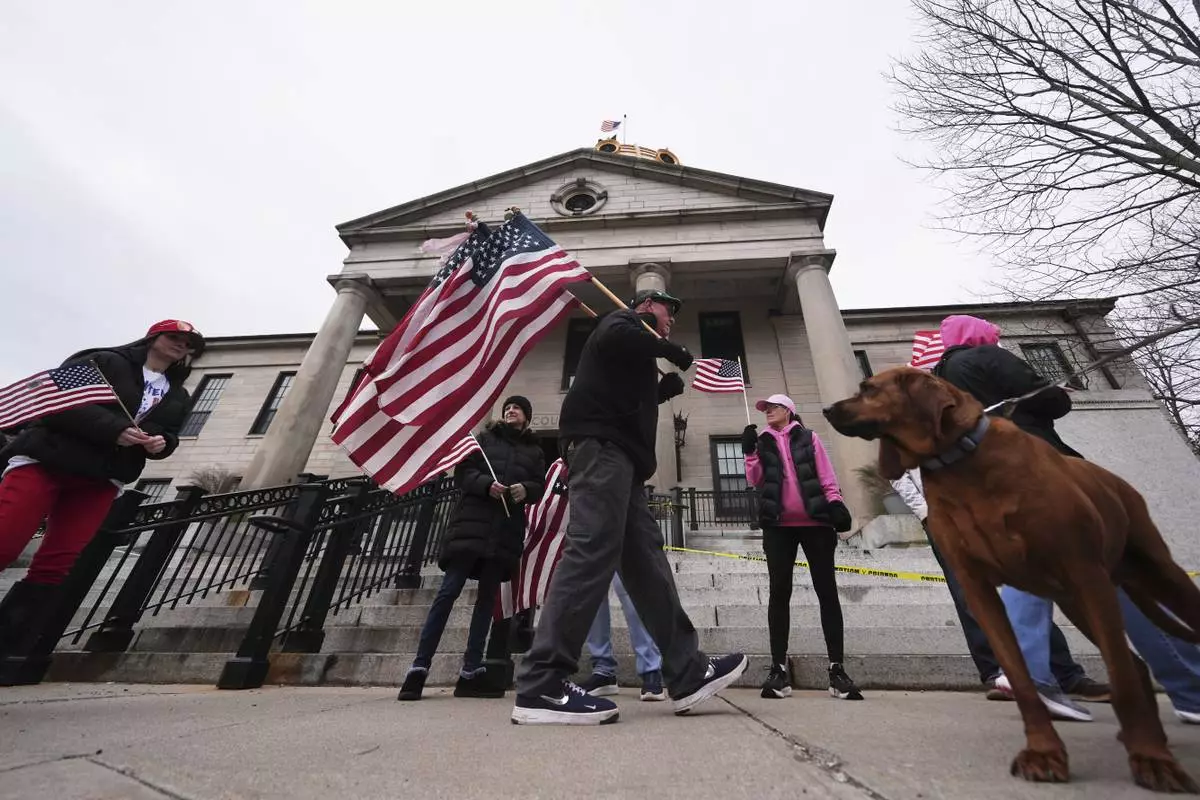
Supporters of Karen Read gather prior to jury selection for the trial of Karen Read outside Norfolk County Superior Court, Tuesday, April 1, 2025, in Dedham, Mass. (AP Photo/Charles Krupa)
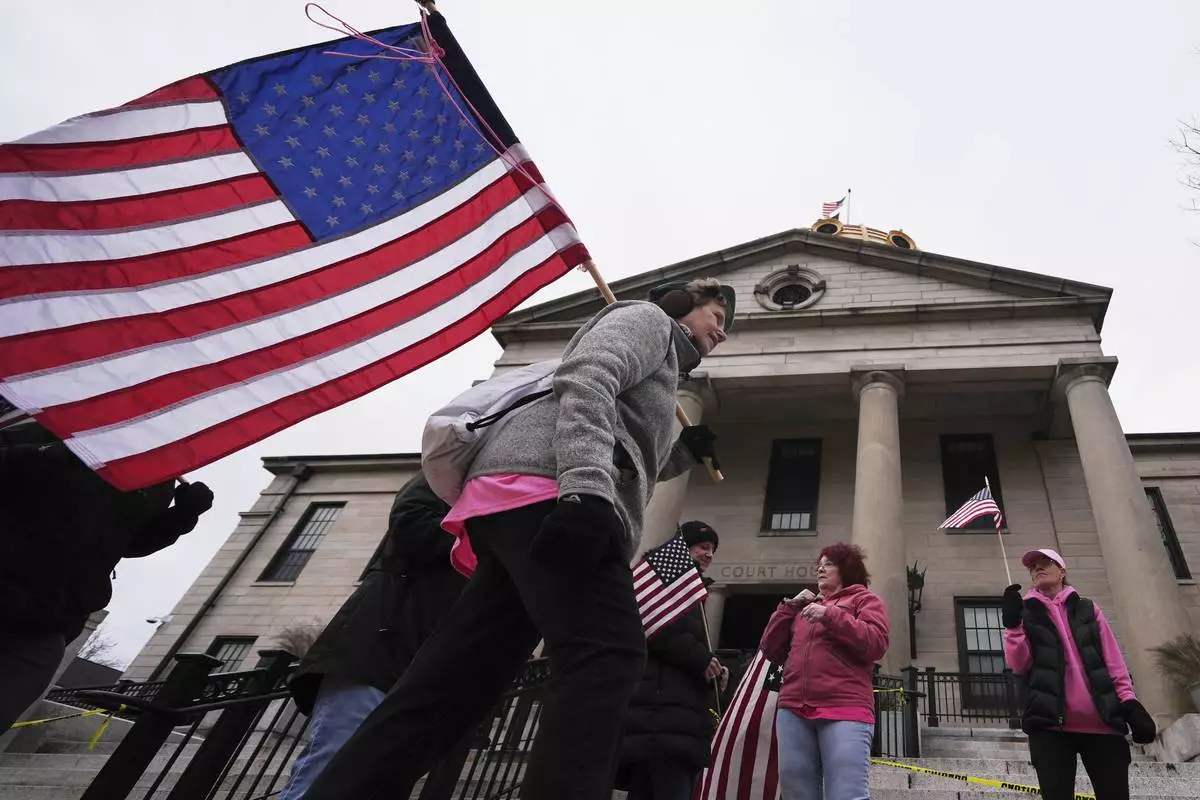
Supporters of Karen Read gather prior to jury selection for the trial of Karen Read outside Norfolk County Superior Court, Tuesday, April 1, 2025, in Dedham, Mass. (AP Photo/Charles Krupa)
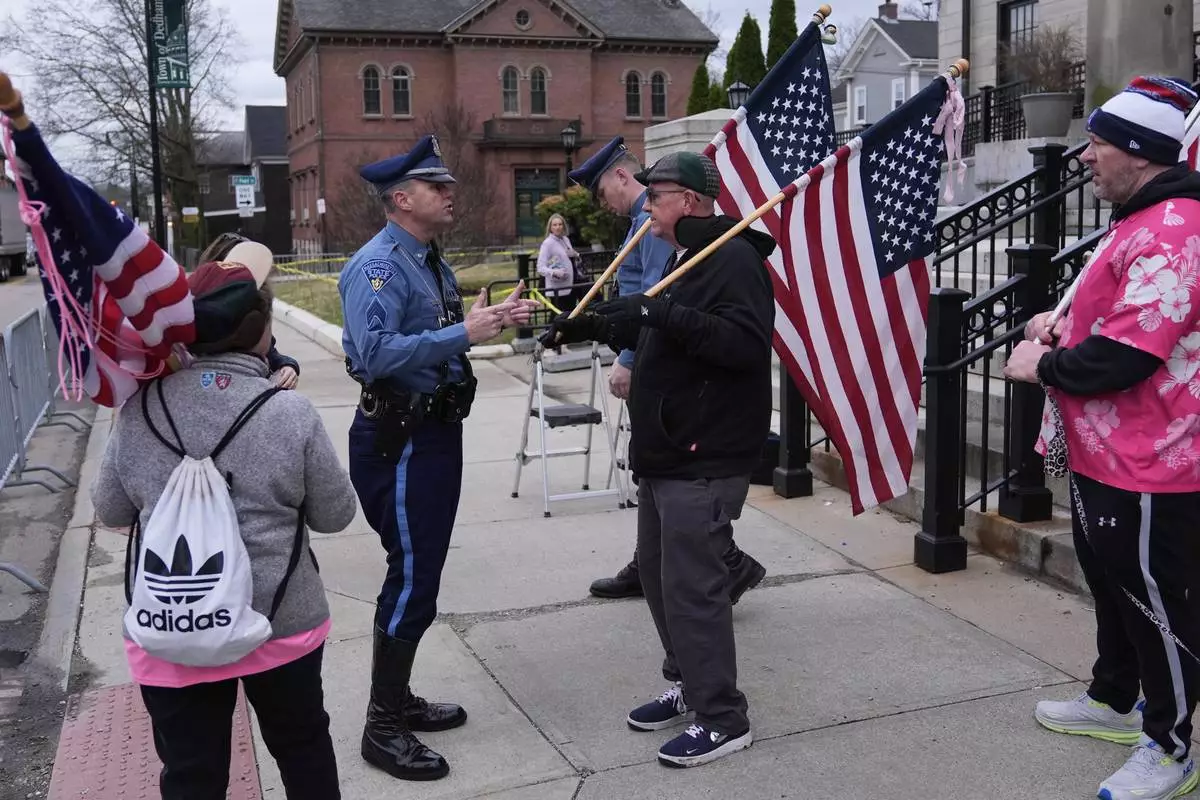
A Massachusetts State Police officer talks with supporters of Karen Read, who gathered prior to jury selection for the trial of Karen Read, outside Norfolk County Superior Court, Tuesday, April 1, 2025, in Dedham, Mass. (AP Photo/Charles Krupa)

Supporters of Karen Read gather prior to jury selection for the trial of Karen Read outside Norfolk County Superior Court, Tuesday, April 1, 2025, in Dedham, Mass. (AP Photo/Charles Krupa)
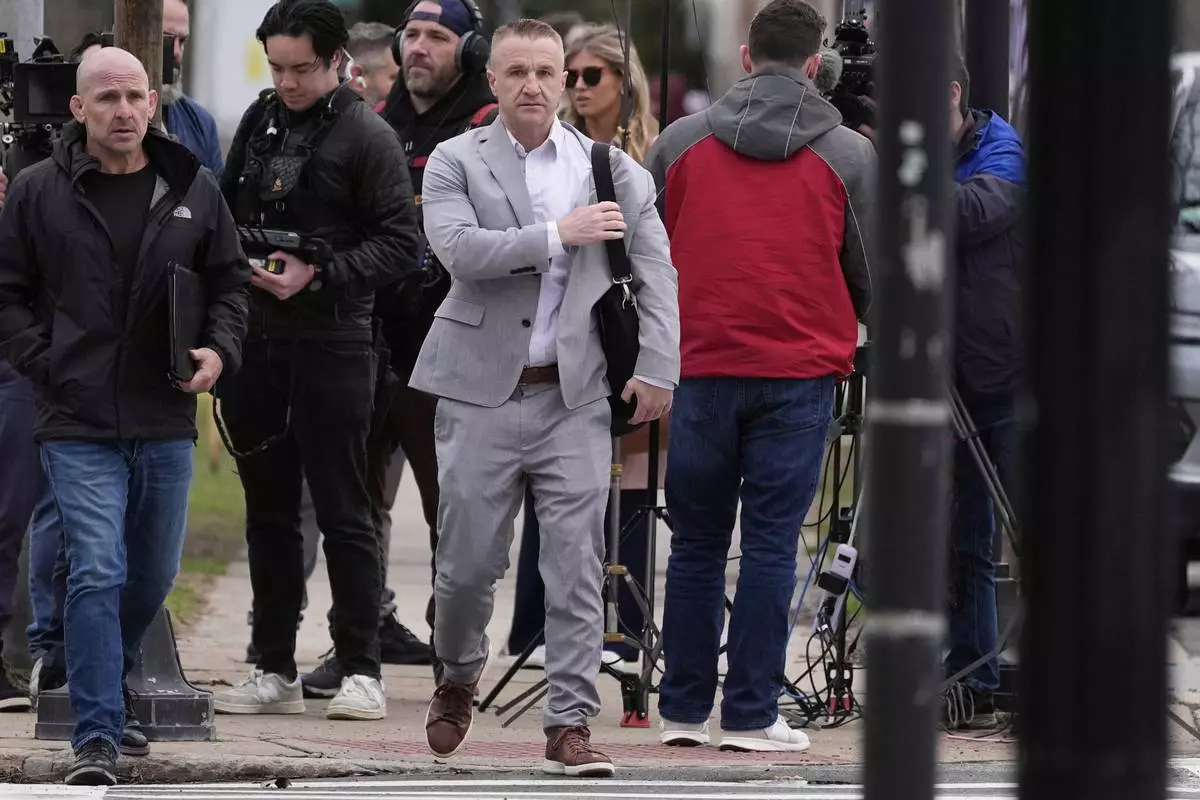
Aidan Kearney, the blogger known as Turtleboy, walks towards court prior to jury selection for the trial of Karen Read outside Norfolk County Superior Court, Tuesday, April 1, 2025, in Dedham, Mass. (AP Photo/Charles Krupa)
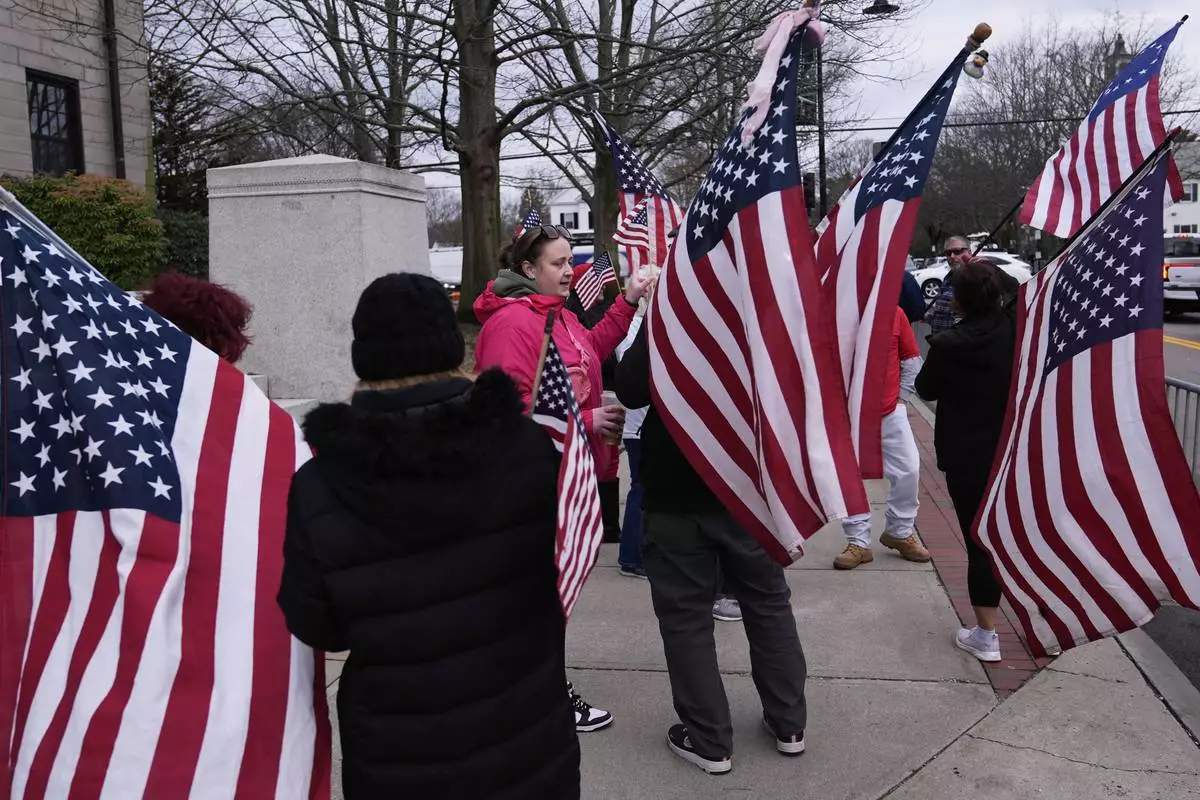
Supporters of Karen Read gather prior to jury selection for the trial of Karen Read outside Norfolk County Superior Court, Tuesday, April 1, 2025, in Dedham, Mass. (AP Photo/Charles Krupa)
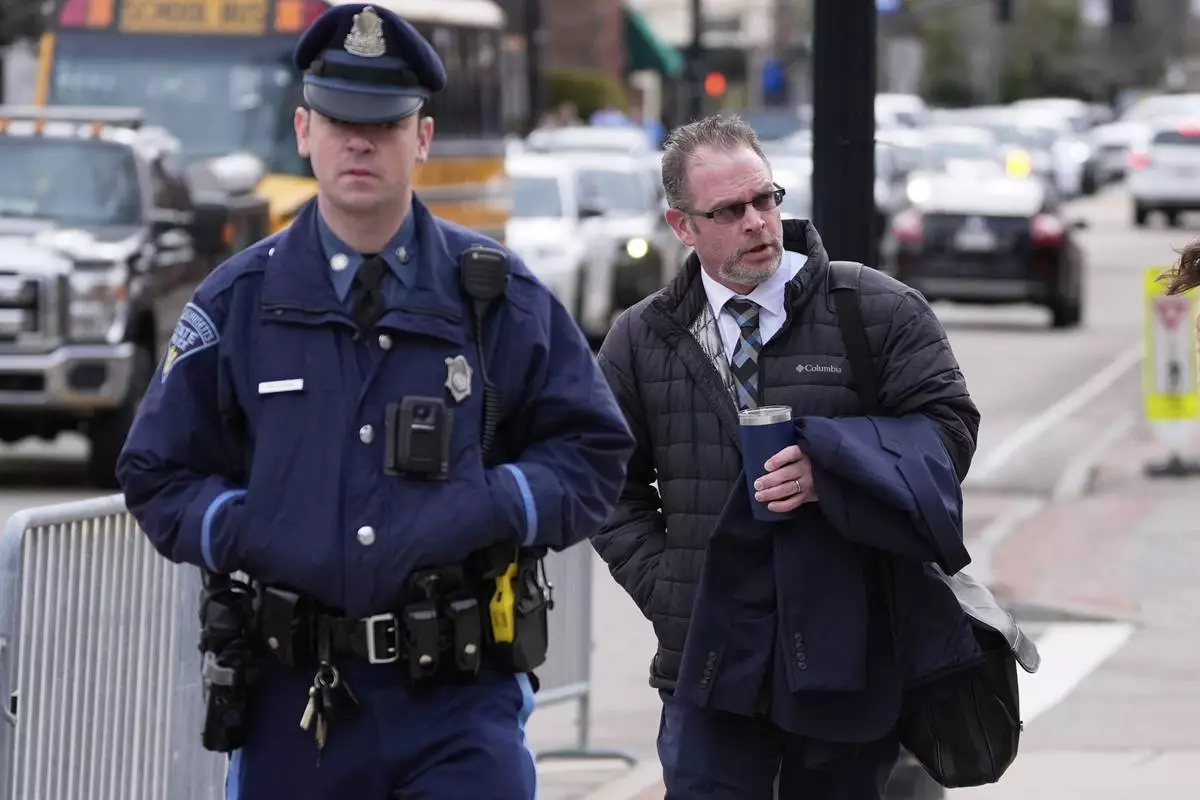
Prosecution attorney Adam Lally, right, arrives for jury selection for the trial of Karen Read at Norfolk County Superior Court, Tuesday, April 1, 2025, in Dedham, Mass. (AP Photo/Charles Krupa)
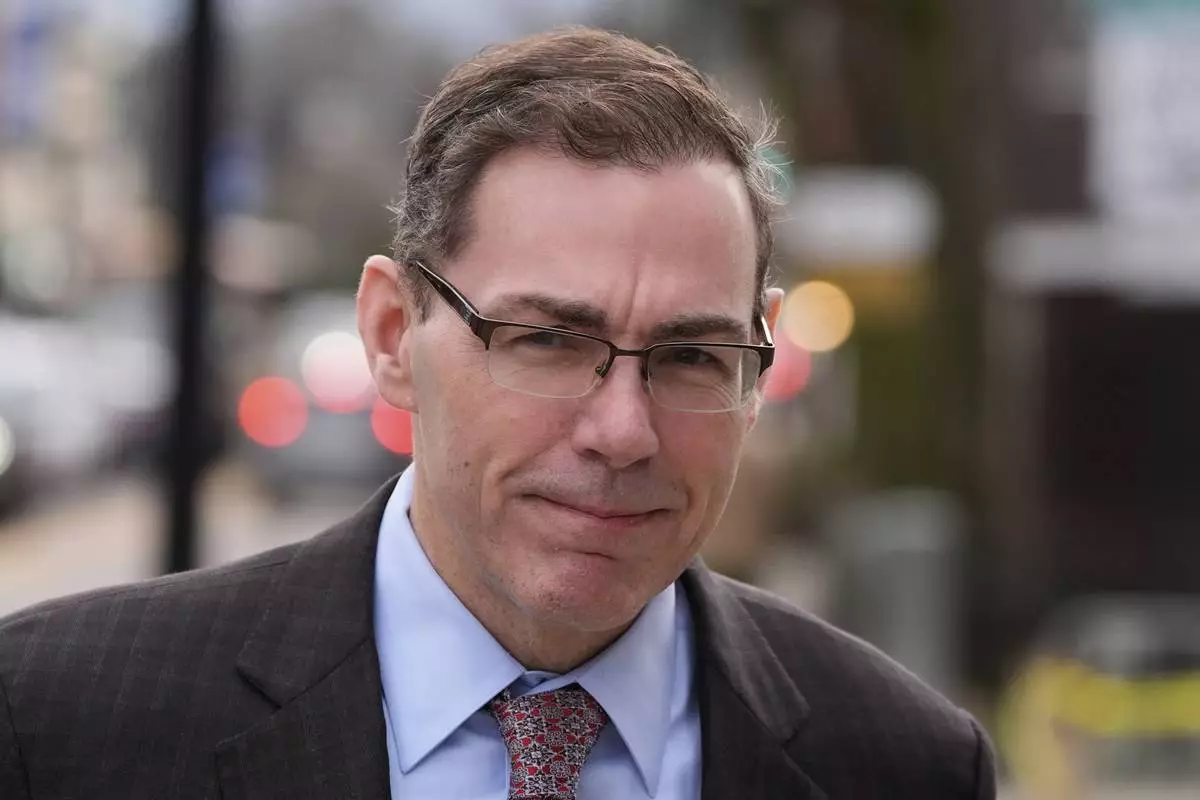
Prosecution attorney Hank Brennan arrives for jury selection for the trial of Karen Read at Norfolk County Superior Court, Tuesday, April 1, 2025, in Dedham, Mass. (AP Photo/Charles Krupa)

Karen Read arrives for jury selection for her trial at Norfolk County Superior Court, Tuesday, April 1, 2025, in Dedham, Mass. (AP Photo/Charles Krupa)

Karen Read arrives for jury selection for her trial at Norfolk County Superior Court, Tuesday, April 1, 2025, in Dedham, Mass. (AP Photo/Charles Krupa)

Karen Read arrives for jury selection for her trial at Norfolk County Superior Court, Tuesday, April 1, 2025, in Dedham, Mass. (AP Photo/Charles Krupa)
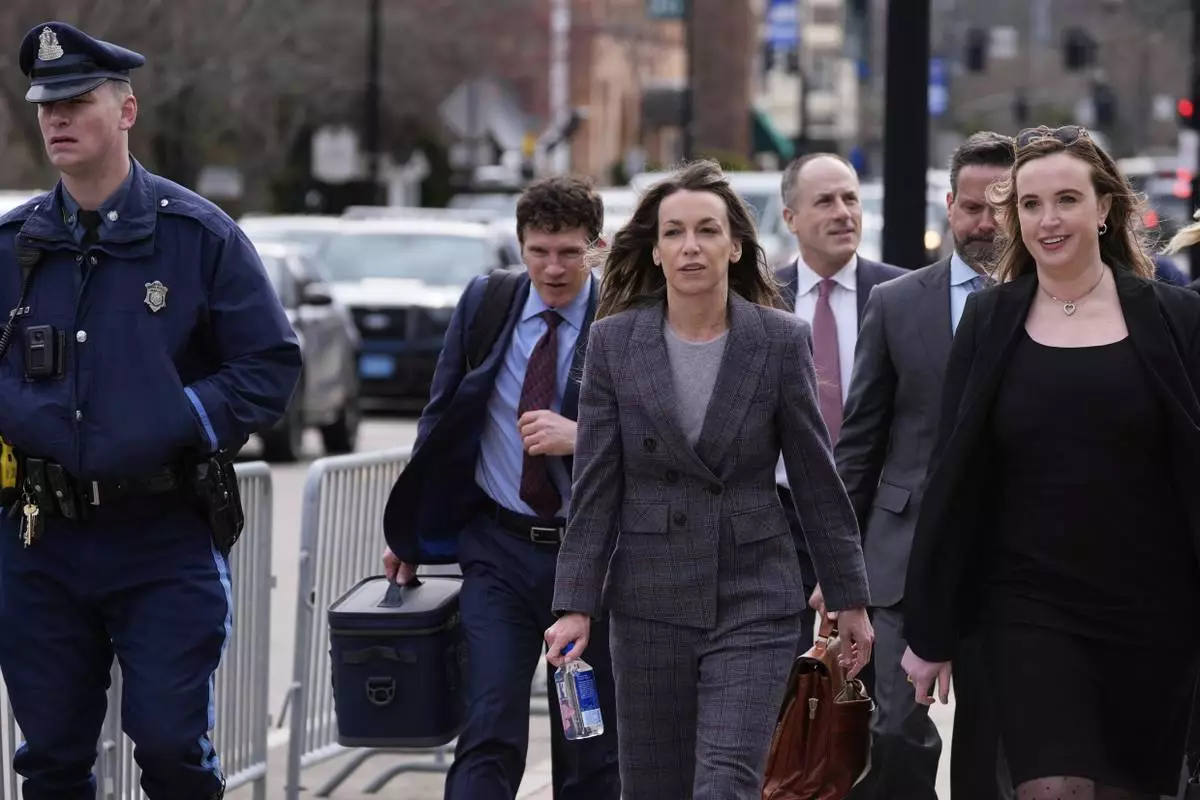
Karen Read arrives for jury selection for her trial at Norfolk County Superior Court, Tuesday, April 1, 2025, in Dedham, Mass. (AP Photo/Charles Krupa)
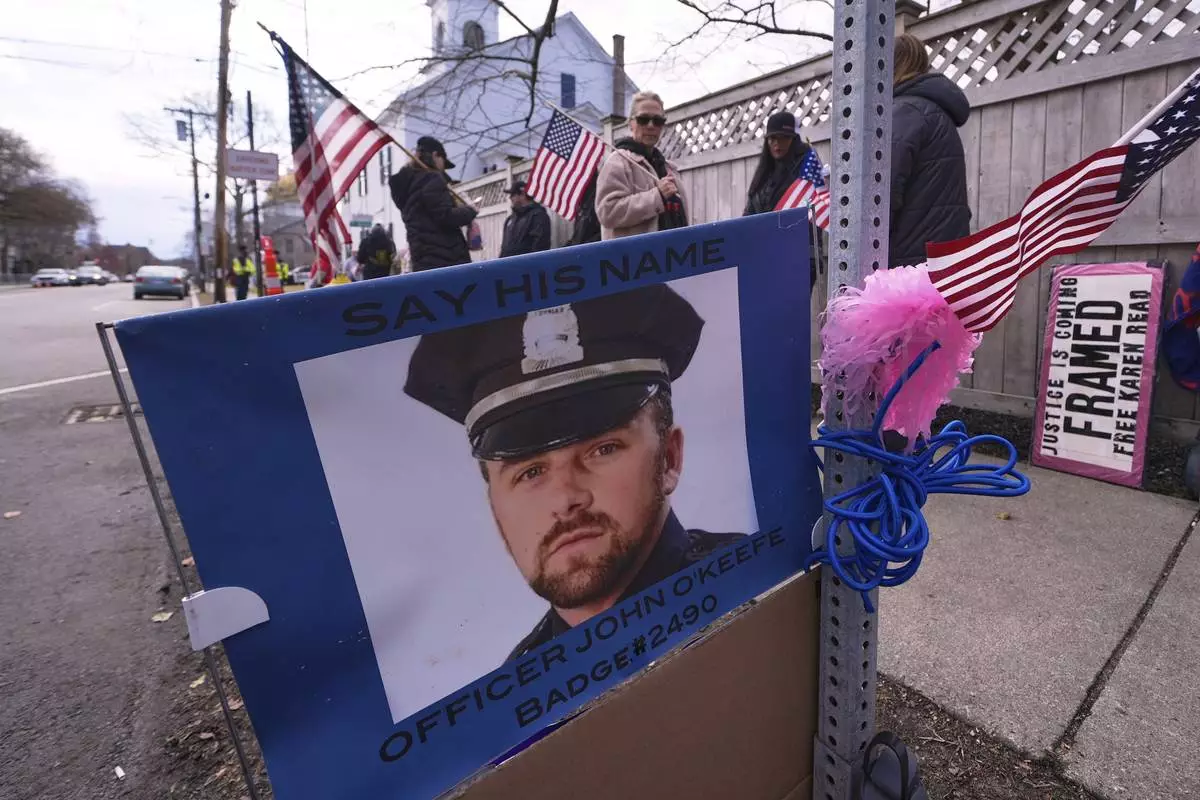
Supporters of Karen Read gather during jury selection for the trial of Read outside Norfolk County Superior Court, Tuesday, April 1, 2025, in Dedham, Mass. (AP Photo/Charles Krupa)
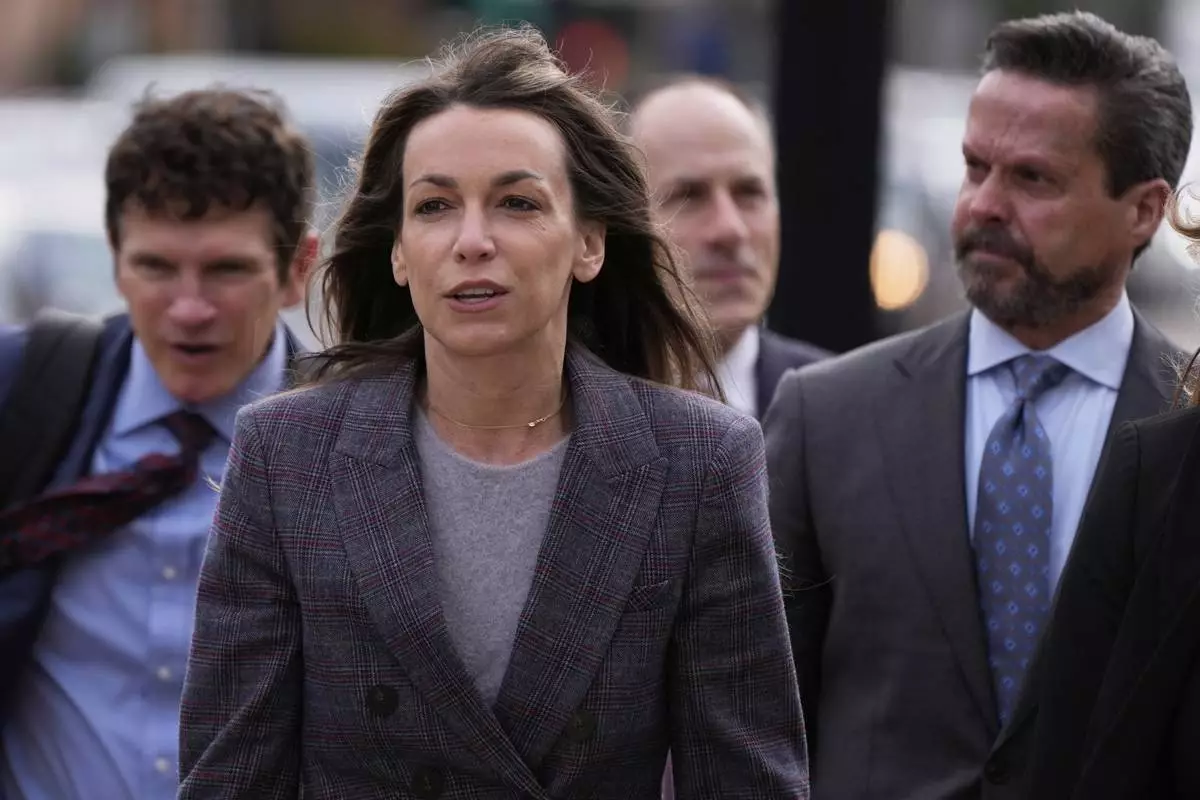
Karen Read arrives for jury selection for her trial at Norfolk County Superior Court, Tuesday, April 1, 2025, in Dedham, Mass. (AP Photo/Charles Krupa)




